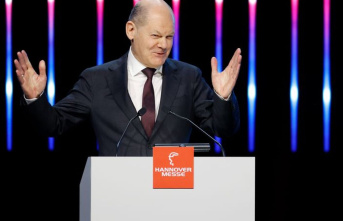Bruce Kasman (Brooklyn, USA, 1956) is the chief economist of J. P. Morgan, one of the largest banks in the world.
Question. How do you see the global economy in 2020?
Response. The growth rate is the lowest it has been since 2015. We believe that the year will start with this trend of slowing down. There are a number of ballasts politicians, particularly the trade tensions, which cause firms to be more cautious, reducing their investments and the recruitment of staff. However, in the second part of the year, clearing the uncertainties, we could be looking at a acceleration. The economic fundamentals are good and in addition are supported by monetary policies.
P. ruled out any possibility of recession in the major economies.
A. there are Always risks. It is not ruled out that the trade negotiations run aground or that the Brexit to harden. We are caught in a storm but we must be patient, as it could be laying the foundations for a recovery next year. After years of growth led by the US, in 2020 the rebound could be supported by emerging countries and European. This last area is, in fact, our bet is most compelling for the next year.
Q. What has changed in Europe for this improvement?
“The economic system is not dealing effectively with many of the current challenges”
A. In the first place, the underlying data of the european economy have never been too much of a concern. The problem is that the continent saw how three of its biggest economies faced particular problems. The uncertainties linked to the Brexit punish the United Kingdom, in the case of Italy, there are that remember their budgetary problems and the confrontation with the European Commission, while Germany, in particular, their industry, has been penalized by external factors. Now we see how these factors are losing strength and your role of ballasts is reduced. If there is a global recovery, Europe is in a position to do well. European companies have been very prudent and, to little to improve the picture, will return to invest more. In the next four quarters, Germany may grow by over 1.5%; it is not a boom, but a substantial change with respect to what has happened in the last year.
Q. The threat tariff, are a statement of the failure of globalization?
A. globalization is a success because it has created wealth and growth. Furthermore, it has been a powerful tool for reducing inequality between countries, and raising the conditions of life. However, there has also been a factor that has contributed to increase inequalities within a country and that has resulted in greater political instability.
Q. The monetary policy is close to its limit. What is the time for Governments to assume their responsibility?
“There is reason to think that the next crisis will be different to the last - ”
A. central banks have played a key role in the exit from the crisis. Where is the limit of their performance? There is scope for more non-standard measures, but there is a political resistance for fear of the consequences. In my opinion, there are two issues still to be resolved. The first is inflation, which remains very weak. The Federal Reserve is being aggressive in their messages to boost prices, but this is not what we see in Europe or Japan, where the problem of low inflation is very significant. On the other hand, no one is raised the question of whether they have sufficient tools to react in the event of global recession. And the answer to that is, probably, no, don't have. What we need is greater collaboration among central banks and their monetary policies, governments and their fiscal stimuli and the support of the regulation. Need a plan, that is, to recognize that at some point we will have a recession, assume the limits of monetary policies and see how we will react. Now we are not in that phase. The good news is that we're not going to have a recession next year, the bad news is that we are not preparing for the problems that are going to come.
Q. Do you Fear that the liquidity injected end up generating a financial bubble? Do we have a crisis like that of 2007?
A. Not... of time. The difference is that neither the housing sector nor the corporate are in a similar situation. The investments are to some extent depressed, and credit is weak if you compare it with the GDP growth. The backgrounds are not similar, but that does not mean that there is no risk. The price of assets, especially stock, has risen considerably by the large liquidity in a time of pressure on corporate profits because the labour market is tightening and wages are going up. Put another way, we may be in 2004, not in 2007. There are reasons to think that the next crisis will be different to the last.
“The fundamentals of the economy are good and are supported by monetary policies”
Q. The populist movements have risen among other reasons for the greater inequality. What should be done to correct the inequity?
A. I would speak of populism, but also of nationalism. These movements are not exactly equal, but the inequality is an element that has contributed to its boom. The economic growth is lower and there are failures in the distribution of the wealth generated. The answers that have been given to the increase of the inequality, from Governments of the left and the right have not worked. But it is a problem that is not going to solve by closing the border or raising tariffs. Populism and nationalism are giving solutions that do not help to reduce inequality, rather the opposite.
Q. Are you rethinking the liberal model prevailing?
A. Depends on what you understand by rethink. If we change the way in which the public sector intervenes in the economy, would not agree. If we refer to a rethinking of the policies because we live in a world of increasing concentration of income and where globalization and technology are creating a remarkable relocation, I think that yes we should study what we can do. The current economic system is not dealing effectively with many of these challenges.
Date Of Update: 29 December 2019, 00:00






